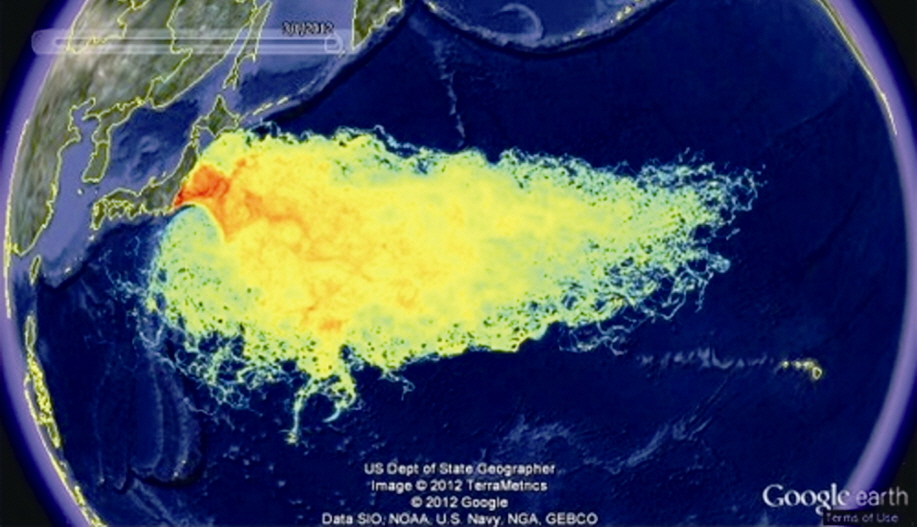 |
Cesium, tellurium, ruthenium, cerium, zirconium, and uranium are all radioactive material. Since this matter started to leak, the area was closed within a radius of twenty kilometers. Unfortunately, the effects in Korea are not fully known. We need to keep an eye on the diffusing radioactivity around the ocean. The radiation will spread over the whole ocean, because of the ocean currents. This poses a serious threat when eating seafood, and when it rains, it contaminates the soil and plants.
A 2013 WHO report predicts that there is a 70 percent higher risk of thyroid cancer, and a 6 percent higher risk of breast cancer for female infants exposed in the most contaminated areas, with a 7 percent higher risk of leukemia in male infants. In addition, the radioactive matter affects not only infants but also adults’ internal organs, and hereditary processes. This genetic problem is the most serious because it causes the birth of deformed children.
To assuage fears, the Japanese government enacted an order to decontaminate the areas, and seeks to educate the effects of radiation to children. All but two nuclear power plants in Japan have been shut down since last March, one year after the disaster. But the Japanese government doesn’t have any safety measures yet. In Korea, the Ministry of Food and Drug Safety prohibited importing some goods from Japan, and the National Assembly Research Service, NARS, suggested the banning of all fishery products from Japan. After the nuclear disaster in Japan, the Dutch government declared they will close all nuclear power plants by 2022. Moreover, India, Italy, Spain, Switzerland, Taiwan and the US also share this anti-nuclear sentiment. Nuclear power plants in Korea have promised to complete the installation of Containment Filtered Ventilation Systems, CFVS, which can prevent the spilling the radioactive matter even after the primary reactor is damaged, and Automatic Seismic Trip Systems, ASTS, which can shut off all nuclear reactors quickly and safely if an earthquake breaks out. It remains to be seen if their word can be trusted.
Kim Du-ram -
<저작권자 © The Campus Journal, 무단 전재 및 재배포 금지>

 Shrinkflation, Consumer Deception
Shrinkflation, Consumer Deception




